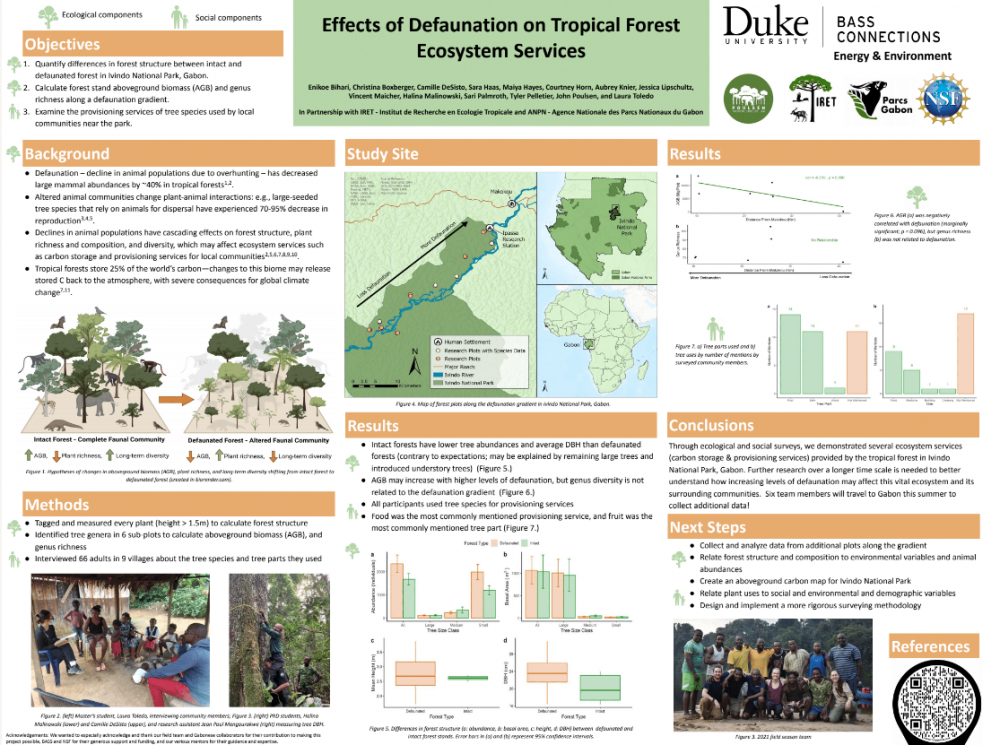How Ecosystems and Communities Interact in the Tropical Forests of Gabon
Project Team
Tropical forests are one of Earth’s best defenses against rising CO2 levels. They act as a major carbon sink, absorbing 25-33 percent of atmospheric carbon emissions. Unfortunately, human activities reduce their size and transform them into a source of emissions. Logging and burning are the most conspicuous disturbances, but cryptic disturbances, like hunting, can also reduce the carbon storage and sink potential of rainforests.
This project team examined the effects of defaunation, or declining animal populations, in Ivindo National Park, Gabon, on tropical forest structure and provisioning services for local communities. Team members tagged, identified and measured plants in order to determine aboveground biomass (AGB) and genus richness. They also interviewed 66 adults in nine villages about the significance and use of different tree parts, such as fruit, bark and wood.
Through the collection and analysis of data from ecological and social surveys, the team was able to highlight changes in forest structure along a defaunation gradient and demonstrate the importance of several tree species and their parts to local communities. Further research over longer time scales is needed to better understand the long-term effects of defaunation on tropical forests and the communities that rely on them.
Effect of Defaunation on Tropical Forest Ecosystem Services
Poster by Enikoe Bihari, Christina Boxberger, Camille DeSisto, Sara Haas, Maiya Hayes, Courtney Horn, Aubrey Knier, Jessica Lipschultz, Vincent Maicher, Halina Malinowski, Sari Palmroth, Tyler Pelletier, John Poulsen and Laura Toledo

